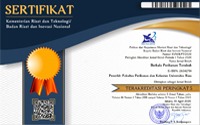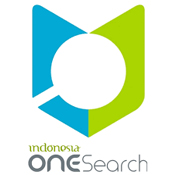Analysis of Socio-Economic Factors Affecting Waste Management (Case Study of Mandau District, Bengkalis)
Abstract
Keywords
Full Text:
PDFReferences
Amina, N,Z,N dan Adina, M. 2021. Pengelolaan Sampah dalam konsteks Pembangunan Berkelanjutan, (On-line) https://hmgp.geo.ugm.ac.id/2021/08/27/pengelolaan-sampah-dalam-konteks-pembangunan-berkelanjutan-waste-management-in-the-context-of-waste--management/, diakses pada 12 Desember 2022.
Beni, Martinus, T, Arjana, I.G.B dan Ruslan, R. 2014. Pengaruh Faktor-faktor Sosial Ekonomi terhadap Perilaku Pengelolaan Sampah Domestik di Nusa Tenggara Timur. Jurnal Ilmu Lingkungan. Vol 12, no 2, hal 106-114.
Gustini, S. 2019. Pengaruh Insentif dan Rewards terhadap Kinerja Petugas Kebersihan pada Dinas Lingkungan Hidup Sekayu. Jurnal Adminika. Vol 5, no 1, hal 98-111.
Peraturan Daerah Kabupaten Bengkalis Nomor 2 Tahun2015 tentang Pengelolaan Sampah.
Qodriyatun, S.N. 2015. Bentuk Lembaga yang ideal dalam pengelolaan sampah di Daerah (Studi di Kota Malang dan Kabupaten Gianyar). Jurnal Aspirasi. Vol 6, no 1, hal 13-26.
Ramadaniarsih, D.S. 2020. Konflik Sosiak Antara Warga dan Petugas Pengelola TPA Sampah di Kecamatan Pontianak Utara. Skripsi. Program Studi Pendidikan Sosiologi. Jurusan Pendidikan Ilmu-ilmu Sosial. Fakultas Keguruan dan Ilmu Pendidikan. Universitas Tanjung Pura. Pontianak.
Rifa’i, I.J, Mukhzirul, I, Mohammad, A, Erna, I,Alisyah, N, Ria, A, Nur, C, Sarnesi, Putri, U, Ika, N dan Ini, C. 2022. Pelatihan Pengolahan Limbah Sampah sebagai Alternatif Nilai Guna Berbasis Kearifan Lokal Watubelah Cirebon. Jurnal Pengabdian Masyarakat Etos. Vol 4, no 1, hal 51-57.
Suryani, A.S. 2014. Peran Bank Sampah dalam Efektifitas Pengelolaan Sampah (Studi Kasus Banks Sampah Malang). Jurnal Aspirasi. Vol 5, no 1, hal 71-84.
Zulfa, dkk.2021. Strategi Pengelolaan Tempat Pembuangan Akhir (TPA) Sampah di Kecamatan Mandau.Universitas Riau. Pekanbaru.
DOI: http://dx.doi.org/10.31258/terubuk.51.1.1802-1807
Refbacks
- There are currently no refbacks.
Copyright (c) 2023 Meuthia Pangerani, Yusni Ikhwan Siregar, Ridwan Manda Putra

This work is licensed under a Creative Commons Attribution 4.0 International License.












